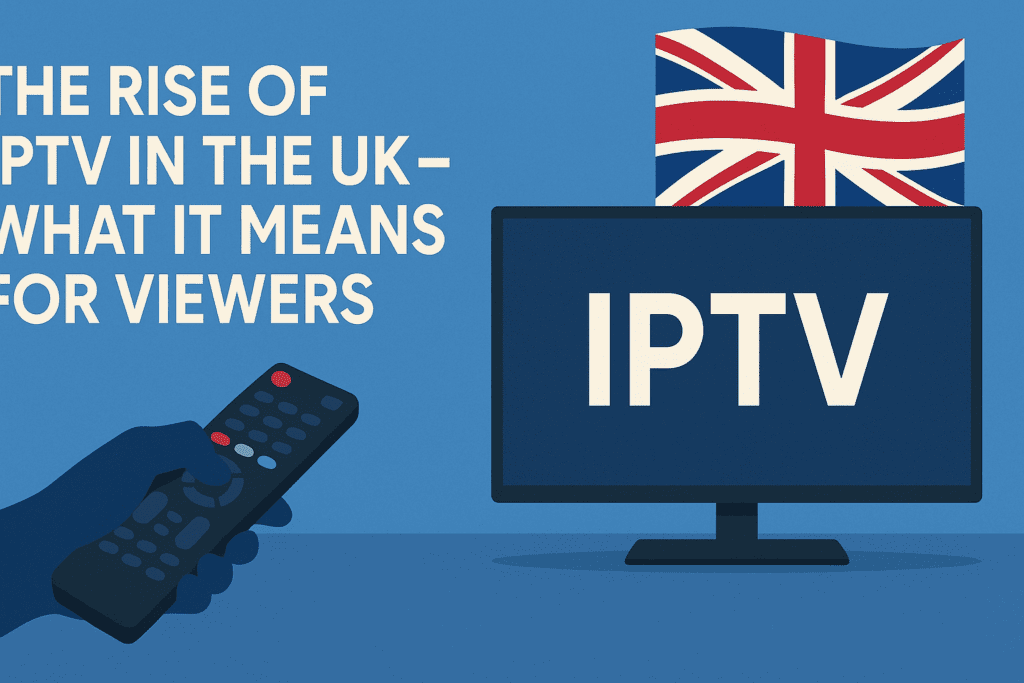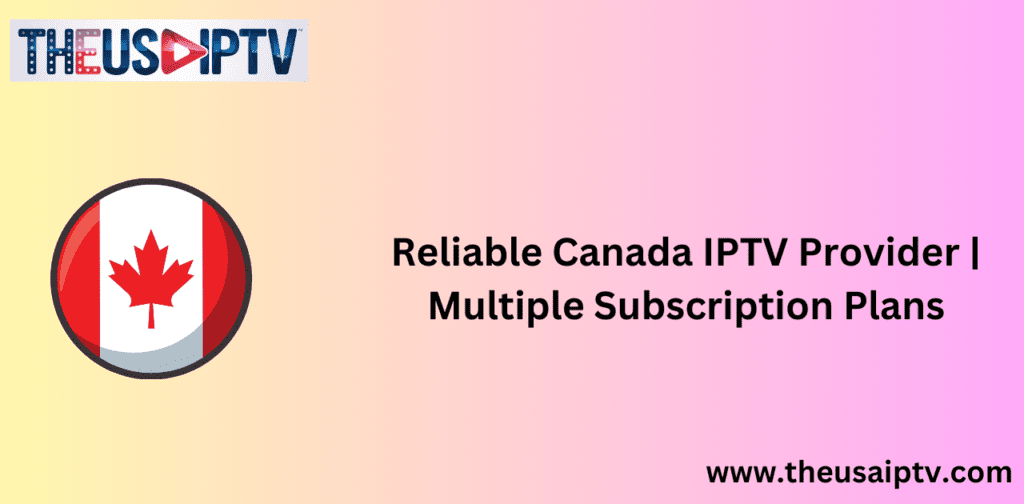In recent years, the television landscape has undergone a remarkable transformation, driven by digital innovation and changing viewer expectations. One of the most profound shifts has been the rise of Internet Protocol Television (IPTV). The adoption of IPTV in the UK is fundamentally changing how audiences consume entertainment. With flexible content delivery, affordability, and personalized user experiences, IPTV has firmly positioned itself as a central feature in the British media ecosystem.
This article explores the growth, implications, and future of IPTV in the UK, shedding light on what it means for today’s viewer.
What Is IPTV?
IPTV stands for Internet Protocol Television, a system where television services are delivered using the internet instead of traditional terrestrial, satellite, or cable formats. It allows users to stream content in real time or on-demand, across multiple devices including smart TVs, smartphones, tablets, and PCs.
Unlike conventional broadcast methods, IPTV is not bound to fixed schedules or physical infrastructure. This flexibility appeals to modern audiences who value choice and control in their media consumption.
The Rapid Growth of IPTV in the UK
The evolution of IPTV in the UK has been shaped by a combination of technological progress and consumer demand. The rollout of high-speed broadband, the affordability of smart devices, and the convenience of on-demand services have all contributed to IPTV’s popularity.
Market reports suggest that IPTV subscriptions in the UK have more than doubled in the last five years. Younger demographics, especially digital natives, are increasingly turning away from traditional pay-TV options in favor of customizable streaming experiences.
Why Consumers Prefer IPTV
The meteoric rise of IPTV can be attributed to several user-focused benefits:
Key Advantages of IPTV
| Feature | Description |
|---|---|
| Content Variety | IPTV services offer extensive global and niche content across all genres. |
| Cost-Effective Plans | Flexible monthly plans are usually cheaper than satellite or cable bundles. |
| Multi-Device Streaming | Content can be streamed on smart TVs, mobiles, tablets, and laptops. |
| Interactive Features | Options like rewind, pause, video-on-demand, and live playback. |
| Personalized Experience | AI algorithms suggest shows based on viewing history and preferences. |
These features align with the expectations of UK audiences who prioritize value, accessibility, and autonomy in their entertainment choices.
Legal and Ethical Considerations
As IPTV in the UK gains traction, it brings with it a mix of legitimate services and illegal offerings. Legal IPTV services are fully licensed and comply with copyright laws, ensuring fair compensation for content creators and rights holders.
However, illegal IPTV platforms — often offering pirated premium content for a fraction of the cost — pose a major challenge. These platforms are not only unlawful but also risky for users. They may expose viewers to malware, unreliable service, and even legal action.
Enforcement Measures
Authorities like the UK’s Intellectual Property Office and anti-piracy group FACT are actively pursuing and prosecuting illegal IPTV providers. As enforcement increases, it’s vital for consumers to verify the legitimacy of IPTV platforms before subscribing.
How UK Broadcasters Are Responding
Recognizing IPTV’s disruptive potential, many traditional broadcasters are pivoting toward hybrid and internet-based models.
- BBC iPlayer and ITVX are leading the way in on-demand public broadcasting.
- Sky has embraced IPTV with offerings like Sky Glass and Sky Stream, which eliminate the need for satellite dishes.
- Channel 4 (All 4) and My5 have strengthened their streaming platforms to compete with international services.
This strategic shift allows broadcasters to stay relevant and retain viewership by meeting audiences where they are: online.
Viewer Habits and Cultural Impact
The ascent of IPTV in the UK is reshaping not only how but also when and why people watch television. Viewers are no longer confined to prime-time slots or broadcast schedules. Instead, they’re creating personalized routines, binge-watching shows, and exploring global content libraries.
Moreover, IPTV encourages discovery. Many platforms include foreign language content, independent films, and lesser-known genres — enabling a richer, more diverse cultural media experience.
Challenges Facing IPTV in the UK
While the benefits are substantial, IPTV also faces several hurdles:
Main Challenges
- Connectivity Gaps: Rural regions with slower internet speeds struggle with IPTV streaming quality.
- Market Saturation: The influx of providers can confuse consumers and dilute service quality.
- Piracy Risks: Illegal IPTV platforms can compromise user data and violate copyright law.
- Data Privacy: Many services collect user data for analytics and personalized ads, raising ethical concerns.
Ensuring equitable access, strong legal frameworks, and transparent privacy policies will be critical to IPTV’s sustainable future in the UK.
Future Outlook: What’s Next?
The future of IPTV in the UK appears dynamic and innovation-driven. Upcoming trends that could further shape the industry include:
- 5G Integration: Faster, more reliable mobile networks will make high-quality streaming even more accessible.
- Cloud-Based Services: Enhancing storage, scalability, and access to larger content libraries.
- AI-Driven Curation: Hyper-personalized content delivery through advanced recommendation engines.
- Platform Consolidation: Expect fewer, more comprehensive IPTV services as users demand simplified options.
Smart homes may also see deeper integration with IPTV services, enabling voice-activated navigation, seamless device syncing, and augmented reality experiences.
Final Thoughts
The emergence of IPTV in the UK is more than a technological evolution — it represents a cultural and behavioral shift in media consumption. Viewers are now empowered to choose what, when, and how they watch content, all on their own terms.
For content providers, this shift offers immense opportunities to innovate and connect with audiences in more meaningful ways. For viewers, USA IPTV brings convenience, variety, and value. As the ecosystem continues to grow, navigating it wisely — by selecting legal services and advocating for data privacy — will be essential.
Ultimately, IPTV in the UK is not just changing the channel — it’s changing the entire experience.
Frequently Asked Questions (FAQs)
1. What is IPTV and how does it work in the UK?
IPTV, or Internet Protocol Television, is a service that delivers TV content over the internet rather than through traditional cable or satellite systems. In the UK, IPTV allows users to stream live TV, on-demand shows, and movies on multiple devices using a broadband connection.
2. Is IPTV in the UK legal to use?
Yes, IPTV in the UK is legal when provided by licensed and regulated service providers. Legal IPTV platforms comply with copyright laws and pay royalties to content creators. However, using illegal IPTV services that offer pirated content can lead to legal consequences and compromised cybersecurity.
3. What are the benefits of switching to IPTV in the UK?
Some key benefits include lower subscription costs, on-demand access to a wide variety of content, multi-device compatibility, and advanced features such as pause, rewind, and personalized recommendations. IPTV in the UK is particularly appealing to viewers looking for flexibility and control over their viewing experience.
4. Can I access international channels through IPTV in the UK?
Yes, many IPTV services in the UK provide access to a wide range of international channels. These may include foreign news networks, sports channels, movies, and regional entertainment, making IPTV a popular choice for multicultural households.
5. What should I look for when choosing an IPTV provider in the UK?
When selecting a provider, ensure the service is legal and has a strong reputation. Look for features like high-definition streaming, reliable customer support, content variety, and multi-device support. Always avoid suspiciously cheap or unverified IPTV services in the UK, as they may be illegal or unreliable.


